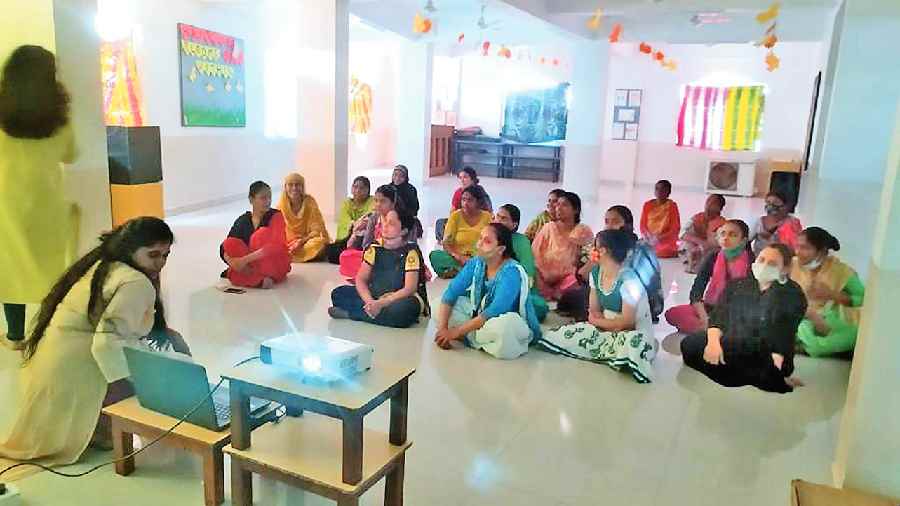Women from marginalised families in Kolkata and parts of the Sunderbans in the South 24-Parganas district are being provided sanitary pads in exchange of plastics.
The idea is to cater to the menstrual hygiene of women, many of whom still depend on unhygienic alternatives and simultaneously raise their awareness about the harmful impact of plastics.
“Plastic for pads encourages an exchange of plastic waste from the house that, if not collected or segregated, would only continue to pollute the environment,” said Kavita Kajaria, the founder of the initiative called Green Pari.
“The women bring plastics, wrappers of chips and in return get reusable pads. The idea is to make them mindful of low value plastic (less than 40 microns) and how it can be used differently.”
Several NGOs, which work in Kolkata and some districts of Bengal, are collaborating with Green Pari. The sanitary pads that are handed over are also made by underprivileged women.
The chain does not stop there. The plastics that these women collect are then used to make various embellishments for jute bags, cushion covers and mats.
These embellishments are also made by the women from the lower-income group. “They are talented and with some guidance they can produce excellent handicraft,” said Kajaria.
Many of these women and their families have suffered huge losses during the pandemic and the lockdown. “These women can earn by making these embellishments at home,” said Kajaria.
